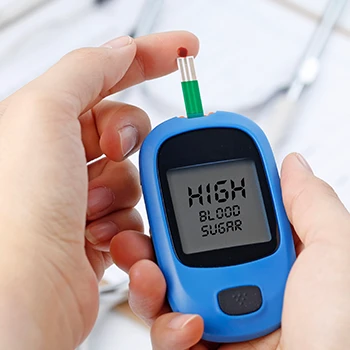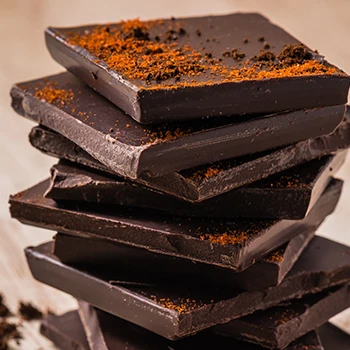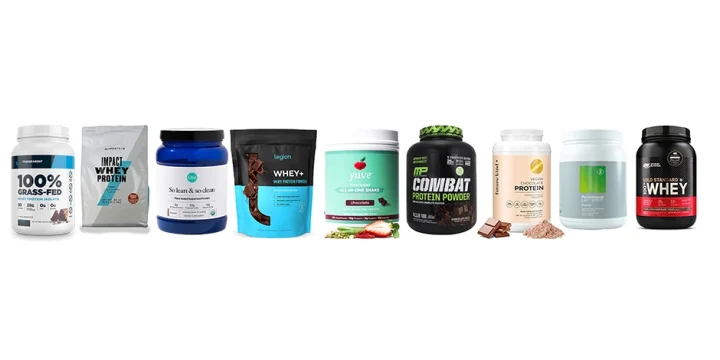As a certified personal trainer, I always advise my clients to watch the sweeteners they add to their pre-workouts because not all are healthy and helpful to their fitness journeys.
From my own training experience, I've found that replacing artificial sugars and sweeteners with natural sugar compounds from chocolate and cocoa provides a noticeable boost during weightlifting and cardio sessions.
This aligns with what a doctor colleague of mine suggested about the benefits of chocolate for workouts.
To back up these claims, I went over the latest research into chocolate and its pre-workout properties to gather all the essential information.
Here's what I found.
Quick Summary
- Consuming dark chocolate before workouts can enhance performance due to its high flavonoid content, which boosts blood flow and muscle recovery.
- Dark chocolate contains beneficial compounds like theobromine and tryptophan, which aid in relaxation and improve mood during exercise.
- According to News Medical, 70% dark chocolate contains about 1.156mg of flavanols per gram, significantly higher than natural cocoa powder's 34.6mg, enhancing its antioxidant action during intense workouts.
- In my experience, integrating dark chocolate as a pre-workout snack has proven to be a delicious and effective way to boost energy and focus.
Chocolate as a Pre-Workout Snack

Chocolate is good before working out because of these compounds:
- Flavonoids: Dark chocolate has lots of cocoa, and cocoa is rich in flavonoids. 70% dark chocolate has about 1.156mg of flavanols per gram, compared to natural cocoa powder's 34.6mg. These cocoa flavanols were initially identified due to their strong antioxidant action under an intense exercise regime [1].
- Theobromine: This is a kinder, milder relative of caffeine with a modest stimulant effect on the mind and other elements that encourage relaxation to help you tolerate exercise, according to one of the studies from the ResearchGate website [2].
- Tryptophan: This is a building block for the production of the relaxing brain chemical serotonin [3].
- Polyphenols: According to one of the studies from the National Center for Biotechnology Information website, this compound helps decrease the buildup of lipid and protein oxidation byproducts and increases antioxidant capability in athletes [4].
Incorporating chocolate into my pre-workout routine, I've personally experienced the benefits of its key compounds like Flavonoids, Theobromine, Tryptophan, and Polyphenols. These elements contribute significantly to enhanced performance and recovery during my training sessions.
7 Benefits of Chocolate as a Pre-Workout Meal
The secret behind the powerful punch of premium dark chocolate is the cocoa bean.
Here’s what it can do.
1. Reduces Muscle Injury

Having recommended dark milk chocolate to my clients as a pre-workout snack, I've observed a noticeable reduction in muscle damage among those who are more intensely training. This aligns with studies suggesting its benefits for elite athletes.
A study on healthy adults aged 30-45 showed that their levels of antioxidant agents increased after consuming dark chocolate for 30 days.
Their oxidative tension and signs of muscle damage also decreased [5].
These journal findings suggest that consuming natural antioxidants from foods like natural cocoa powder and red wine may be an easy, affordable, and delectable way to lower levels of exercise-related muscle damage.
By incorporating natural antioxidants found in foods like dark milk chocolate, you can enjoy a delicious and affordable strategy to minimize exercise-related muscle damage.
Choosing the perfect pre-workout snack can contribute to a more productive and satisfying exercise session.
2. Cocoa Increases Blood Flow
Through both personal use and observation of my clients, I've seen how chocolate can promote healthy blood flow and enhance cardiovascular function, especially during workouts. This benefit is particularly noticeable in exercises that demand high cardiovascular engagement.
That's because dark chocolate contains compounds known as flavonoids, which have numerous health benefits for the cardiovascular system.
These include promoting healthy blood flow and maintaining ideal levels of cholesterol and blood pressure [6].
"Flavanol occurs naturally in higher amounts in dark chocolates, which have significant antioxidant properties. However, consuming large unnecessary amounts of even the darkest of chocolates might have a detrimental effect on your body's composition"
- Susan Kitchen, Certified Dietician
Since blood transports oxygen and nutrients to muscle while also eliminating waste molecules like carbon dioxide and lactic acid, efficient blood flow to the muscles during and after exercise may maximize performance and post-exercise recovery fuel [7].
3. Reduced Post-Workout Inflammation

There have been claims that cocoa has inflammation-relieving qualities.
It contains a variety of phytochemicals, such as polyphenols, which have been found to have antioxidant and anti-inflammatory properties and a favorable impact on pain [8].
4. Reduced Coronary Artery Diseases
Regular milk chocolate consumption is linked to a lower cardiovascular and coronary heart disease risk.
It most likely happens because the molecules in cocoa make blood less "sticky" and aid in preventing arterial plaque buildup.
Related: Is Pre-Workout Bad for Your Heart? (Explained by a Doctor)
These same substances are also thought to lessen the risk of stroke [9].
5. Reduced Diabetes Risk

Consuming dark chocolate may increase insulin sensitivity and lower levels of proteins linked to inflammation in the body, which may lower the chance of developing diabetes [10].
6. Relieves Stress
If you eat chocolate in moderation, it might not be as harmful to you as you may have thought.
According to studies, eating one ounce of dark chocolate every day for two weeks helped anxious people's cortisol levels and mood [11].
Working out when you're relaxed allows you to maximize your output.
7. Dark Chocolate Lowers Junk Cravings

Dark chocolate makes you feel fuller longer than lighter-colored chocolates because the fiber in the cocoa bean improves satiety.
According to research, dark chocolate can reduce appetites for fatty, sweet, and salty foods [12].
If you want to lose or maintain a healthy, stable weight, this is a positive feedback loop.
FAQs
How Does Chocolate Affect Athletes?
Chocolate affects athletes by improving their blood flow during exercise and facilitating muscle recovery post-workout.
Does Chocolate Improve Performance?
Yes, chocolate improves performance because dark chocolate contains a high flavonoid content that boosts glycogen stores.
Does Chocolate Give You a Good Pump?
Yes, chocolate gives you a good pump because it has Theobromine found in cocoa. The pump effect exceeds the minimum physiologically relevant change when working out.
How Does Chocolate Impact Endurance Training When Used as a Pre-Workout?
Chocolate impacts endurance training when used as a pre-workout due to its natural sugars and caffeine, which sustain energy levels, and its ability to boost nitric oxide levels, enhancing blood flow and performance.
How Does Dark Chocolate Compare to Traditional Pre-Workout Supplements in Effectiveness?
Dark chocolate compares to traditional pre-workout supplements in effectiveness by offering antioxidants, caffeine, and nitric oxide boosters. While it may not provide the immediate stimulant effect of some supplements, it is a healthier option with fewer side effects.
What Are the Differences Between Dark, Milk, and White Chocolate in Pre-Workout Nutrition?
The difference between dark, milk, and white chocolate is that dark chocolate is preferred due to its higher cocoa content, providing more antioxidants and less sugar than milk or white chocolate, which have higher sugar and fat content and are less suitable for athletic performance.
Can Chocolate Consumption Before Workouts Influence Mental Focus and Concentration?
Yes, chocolate consumption before workouts can influence mental focus and concentration, as the caffeine and flavonoids in dark chocolate stimulate brain function, improving alertness and focus during exercise.
References:
- https://www.news-medical.net/amp/news/20120518/
- https://www.researchgate.net/publication/2294404
- https://web.colby.edu/st297-global18/2018/10/28/2520an%
- https://www.ncbi.nlm.nih.gov/pmc/articles/PMC6683266/
- https://www.hindawi.com/post/dark-chocolate-reducing-muscle-injury/%
- https://www.ncbi.nlm.nih.gov/pmc/articles/PMC2518374/
- https://www.webmd.com/brain/news/20080821/
- https://www.ncbi.nlm.nih.gov/pmc/articles/PMC7203300
- https://www.escardio.org/The-ESC/Press-Office/Press-releases/Chocolate-is-good-for-the-heart
- https://pubmed.ncbi.nlm.nih.gov/24582922/
- https://www.ncbi.nlm.nih.gov/pmc/articles/PMC4350893/
- https://faseb.onlinelibrary.wiley.com/doi/10.1096/fj.202002770RR&ved=2
About The Author
You May Also Like






